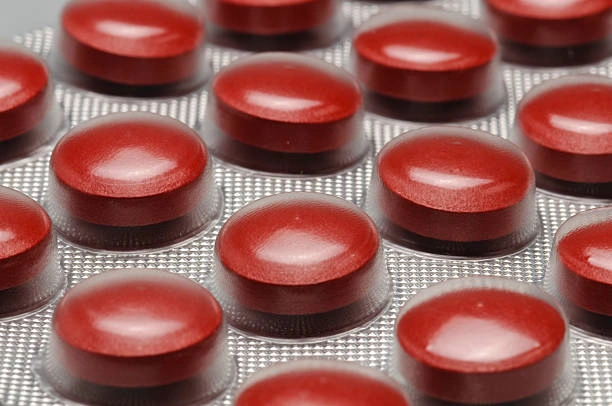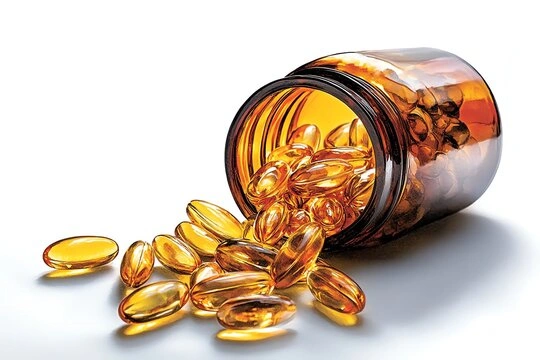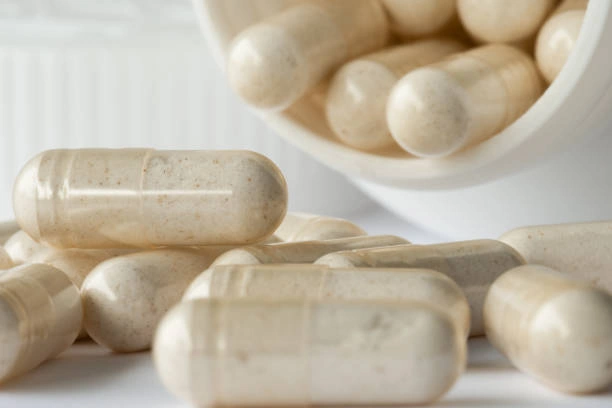9 Best Supplements for Kidney and Bladder Health You Should Know
Updated on Feb 23, 2026

Table of contents
Your kidneys and bladder work tirelessly to keep your body balanced and healthy, but they don’t always get the attention they deserve.
Supporting these vital organs with the right supplements can make a noticeable difference in how you feel every day.
Whether you’re looking to maintain optimal health or address specific concerns, this guide explores the best supplements to keep your kidneys and bladder in great shape.
From improving urinary health to reducing oxidative stress, we’ve got you covered with research-backed options that work.
Warning: If you have known or undiagnosed kidney or bladder conditions or symptoms, it’s essential to avoid self-treating with supplements. Certain ingredients can pose a risk of toxicity, strain the kidneys, or worsen underlying conditions. Supplements that are safe for the general population may cause more harm than good if your body cannot process them effectively. Always consult with a healthcare professional, who can guide you based on your medical history, symptoms, and bloodwork to ensure safety and avoid complications.
With that said, keep reading to find the perfect fit for your health goals!
Why Kidney and Bladder Health Matters
Think of your kidneys as the body’s filtration system—they keep your blood clean by removing waste, balancing minerals, and even regulating blood pressure.
The bladder’s job is no less important, acting as a storage facility for urine and helping the body eliminate toxins. Together, they keep your internal systems running smoothly.
But these organs don’t work in isolation. The kidneys, for instance, are also involved in producing red blood cells, managing calcium levels for strong bones, and regulating key electrolytes like sodium and potassium.On the flip side, a healthy bladder prevents infections and discomfort, ensuring you stay on your A-game.
Studies back up the importance of habits like staying hydrated and eating a balanced diet to keep these systems humming along (1). Small, consistent steps—like cutting back on processed foods and reducing salt—can have a big impact over time.
What Are the Best Supplements for Kidney and Bladder Health?
-
Vitamin D. Supports calcium absorption and reduces inflammation to aid kidney function.
-
Iron. Improves red blood cell production and combats anemia in kidney disease.
-
Calcium. Strengthens bones but must be balanced to avoid health risks.
-
B Vitamins. Boost energy and support red blood cell formation, especially B12 and folate.
-
Omega-3 Fatty Acids. Reduce inflammation and support kidney and heart health.
-
Magnesium. Aids muscle and nerve health while slowing kidney disease progression.
-
Probiotics. Improve gut health and help reduce toxin buildup in the kidneys.
-
Vitamin C. Provides antioxidant protection but should be moderated to avoid kidney stones.
-
Folate. Supports cell repair and reduces inflammation in kidneys and bladder.
Before we get into it, we must mention that if you are known to have kidney or bladder issues, You mustn’t supplement without speaking to your doctor first. The reason is that several of the supplements mentioned in this article can be given in excess with serious side effects.
1. Vitamin D
Vitamin D does more than support bones; it helps manage inflammation and improve calcium absorption, both of which are often disrupted in kidney disease. People with kidney issues often struggle to maintain active forms of vitamin D, which can lead to bone problems.
Research suggests that vitamin D supplementation might also help lower the risk of heart-related complications in those with kidney conditions (2).
However, results vary, so talking to your doctor is key.
2. Iron
 If you’re dealing with fatigue, dizziness, or pale skin, low iron might be the culprit. Iron supports red blood cell production, which is crucial for delivering oxygen throughout the body. For people with kidney disease, anemia—caused by low red blood cell levels—is a common challenge.
If you’re dealing with fatigue, dizziness, or pale skin, low iron might be the culprit. Iron supports red blood cell production, which is crucial for delivering oxygen throughout the body. For people with kidney disease, anemia—caused by low red blood cell levels—is a common challenge.
Studies show that iron therapy, whether taken orally or intravenously, can improve anemia in kidney disease patients (3). Foods like lean meats and beans are good sources, but supplementation may be necessary if dietary intake isn’t cutting it.
However, it is important that your iron levels are checked before taking iron supplements. Self treating with iron supplements without observation and monitoring is not recommended.
3. Calcium
 Calcium is vital for strong bones and proper muscle function, but it’s a balancing act. Too little can lead to brittle bones, while too much may cause calcium buildup in blood vessels, which is risky.
Calcium is vital for strong bones and proper muscle function, but it’s a balancing act. Too little can lead to brittle bones, while too much may cause calcium buildup in blood vessels, which is risky.
Research indicates that calcium supplementation when monitored closely, can help reduce fractures and improve bone health in people with kidney disease (4). A diet rich in leafy greens, dairy, or fortified alternatives is a smart way to complement supplements.
Calcium levels must be checked regularly if taking calcium supplements. High calcium levels can have serious adverse health consequences.
4. B Vitamins
B vitamins, particularly B12 and folate, are key players in energy production and red blood cell formation. Deficiencies can cause anemia, which brings on fatigue and weakness—common issues for those with kidney problems.
Studies also hint that these vitamins may help reduce homocysteine levels, which are linked to cardiovascular health concerns (5). Foods like eggs, leafy greens, and fortified cereals can provide these vitamins alongside supplements.
B12 levels should be checked before starting supplements. There is no need to supplement if your B12 levels are within a normal range.
5. Omega-3 Fatty Acids
 Omega-3s are known for their anti-inflammatory properties, which can benefit kidney health by slowing disease progression. They may also support heart health—a major concern for anyone with kidney issues.
Omega-3s are known for their anti-inflammatory properties, which can benefit kidney health by slowing disease progression. They may also support heart health—a major concern for anyone with kidney issues.
Some animal studies suggest omega-3s may help reduce blood pressure and inflammation, both of which are beneficial for the kidneys (6). If you’re not a fan of fatty fish or flaxseeds, supplements can fill the gap.
6. Magnesium
Magnesium plays a role in muscle function, nerve health, and even heart health. It’s also linked to slowing kidney disease progression. Maintaining optimal magnesium levels may reduce the risk of chronic kidney problems for those without kidney issues (7).
Foods like nuts, seeds, and whole grains are great sources, but supplements can help when diet alone isn’t enough
7. Probiotics
 Gut health impacts everything—including your kidneys. Probiotics help balance gut bacteria and may even reduce uremic toxins, which build up when kidneys don’t function properly.
Gut health impacts everything—including your kidneys. Probiotics help balance gut bacteria and may even reduce uremic toxins, which build up when kidneys don’t function properly.
Research suggests that adding probiotics through fermented foods or supplements could lower inflammation and support kidney health (8).
8. Vitamin C
 Vitamin C is a powerful antioxidant that supports immune health and tissue repair. Moderate doses can reduce oxidative stress, which might benefit the kidneys (9).
Vitamin C is a powerful antioxidant that supports immune health and tissue repair. Moderate doses can reduce oxidative stress, which might benefit the kidneys (9).
However, high doses can lead to oxalate buildup, increasing the risk of kidney stones (10). Stick to natural sources like berries and citrus fruits, or consult your doctor for safe supplementation.
If you eat enough fruit and veg, it is unlikely that you will need to take vitamin C supplements.
9. Folate
Folate aids in cell repair and reduces homocysteine levels, which can protect against kidney damage. It also helps minimize bladder inflammation, making it a good pick for supporting these organs (11).
Levels should be checked prior to taking folate supplements as you may not need it if your levels are good.
Key Ingredients for Kidney and Bladder Health
When picking supplements for kidney and bladder health, focus on ingredients that have solid research behind them. Here’s a quick rundown:
-
D-Mannose: May help prevent bacteria from sticking to the urinary tract lining, which may reduce the risk of UTIs, especially recurrent ones (12).
-
Cranberry Extract: Contains compounds that might stop bacteria like E. coli from attaching to the bladder wall, potentially lowering UTI risks (13).
-
Probiotics: Promotes a healthy urinary microbiome, which can support urinary tract health and reduce inflammation related to kidney issues.
-
Vitamin C: Its antioxidant properties may protect cells and acidify urine, creating an environment less favorable for bacteria.
-
Magnesium: It may lower kidney stone risks by influencing calcium metabolism and improving overall urinary health (14).
-
Potassium Citrate: Alkalizes urine and helps prevent the formation of kidney stones by reducing mineral deposits (15).
-
Horsetail Extract: Often used for its diuretic properties, which may support healthy urination patterns.
-
N-Acetylcysteine (NAC): Reduces oxidative stress, a major factor in kidney damage.
-
Astragalus Root: Traditionally used to support kidney function, though more studies are needed to confirm its benefits.
-
Marshmallow Root: May soothe the urinary tract, reducing irritation and discomfort.
It is imperative that before you start any new supplement, check with a healthcare provider to make sure it’s a good fit for your health needs. Self treating with supplements without guidance can cause more harm than good.
Supplements to Be Cautious With
Some supplements can harm kidney health, especially if you have pre-existing conditions. Here are the ones to watch out for:
-
Vitamins A, E, and K: These fat-soluble vitamins can build up in the body, leading to nausea, dizziness, or more severe issues. If you have kidney problems, only take these under medical supervision (16).
-
Certain Herbal Supplements: Popular herbs like turmeric and evening primrose may contain potassium or phosphorus, which can be harmful to those with kidney disease. Some even contain aristolochic acid, which is toxic to the kidneys (17).
It’s always wise to double-check supplement labels and consult your doctor before adding new vitamins or herbs to your routine, especially if you have underlying kidney concerns.
Choosing the Right Supplement for You
Finding the right supplement isn’t one-size-fits-all. Here are some tips to guide you:
-
Understand Your Needs: Not all supplements are suitable for everyone. For example, some herbal products may contain ingredients that stress the kidneys.
-
Consult a Healthcare Provider: Always talk to your doctor before starting a supplement, especially since the FDA doesn’t regulate supplements as strictly as medications. Supplements marketed for energy or weight loss can sometimes cause harm.
-
Watch for Nutrient Accumulation: Certain nutrients, like potassium, can build up and cause complications. Blood tests can help ensure safe levels.
-
Get Personalized Advice: Work with a dietitian or doctor to create a supplement plan tailored to your unique needs. Personalized plans often lead to better health outcomes.
For those with kidney issues, specialized kidney-safe supplements prescribed by your doctor can provide essential nutrients without unnecessary risks.
Tips for Natural Kidney and Bladder Health
Good habits go a long way in protecting these vital organs. Here’s what helps:
- Stay Hydrated: Water is your best friend for flushing out toxins.
- Eat Balanced Meals: Load up on vegetables, fruits, and whole grains.
-
Control Blood Pressure and Sugar Levels: Both high blood pressure and diabetes can harm your kidneys.
- Exercise Regularly: Even 30 minutes a day of walking or swimming can make a difference.
- Quit Smoking and Drink Less Alcohol: Both can strain your kidneys.
- Get Regular Screenings: Early detection of kidney issues can prevent bigger problems later.
- Manage Stress: Techniques like yoga or mindfulness can help protect your health.
Simple changes, practiced consistently, can keep your kidneys and bladder working smoothly for the long haul.
NMN + Resveratrol: How They Support Kidney and Bladder Health
NMN (Nicotinamide Mononucleotide) and Resveratrol aren’t direct treatments for kidney or bladder concerns, but their benefits on cellular health may indirectly support these organs.
-
NMN helps replenish NAD+ levels, a molecule your body needs for energy production and cell repair. Low NAD+ levels are linked to oxidative stress, a key factor in kidney damage (18, 19).
-
Resveratrol activates sirtuins, enzymes that combat inflammation and oxidative stress, both of which can lead to tissue damage and age-related decline (20).
Together, these ingredients create a healthier environment at the cellular level, reducing strain on your organs by lowering stress and inflammation.
If you’re exploring ways to incorporate these benefits into your routine, Omre’s NMN + Resveratrol is a great option to consider.
The formula is crafted with 98% pure ingredients to support mitochondrial function and cellular repair. While it doesn’t specifically target the kidneys or bladder, its overall impact on cellular health may help these organs indirectly by improving the body’s resilience.
Conclusion
Taking care of your kidneys and bladder is an investment in your long-term health and well-being. From essential vitamins like D and C to innovative supplements like NMN + Resveratrol, there are plenty of options to support these hardworking organs.
Combine smart supplementation with healthy habits like staying hydrated and eating balanced meals, and you'll be on the right track to keeping your body in sync.
Ready to add NMN + Resveratrol to your routine? Omre offers a high-quality formula designed to support cellular health. -v1737748879961.webp) Check availability today and take a step toward a healthier, more resilient you.
Check availability today and take a step toward a healthier, more resilient you.
FAQs
Can supplements cure kidney or bladder conditions?
Supplements cannot cure kidney or bladder conditions, but they may support overall health and help manage certain symptoms. Always consult with your healthcare provider for proper treatment and advice.
Are these supplements safe for people with pre-existing conditions like diabetes or hypertension?
Many supplements can be taken safely with pre-existing conditions, but some may interact with medications or worsen certain health issues. It is essential to consult your healthcare provider before starting any new supplement.
How long does it take to see results with these supplements?
The timeframe for noticeable benefits varies based on individual health and the supplement being taken. Some people may see improvements within weeks, while others may require months of consistent use for optimal results.
Do I need a prescription for kidney and bladder health supplements?
Most supplements are available over the counter, but certain formulations tailored for kidney health may require a prescription. Always follow professional advice to ensure safe and effective use.







